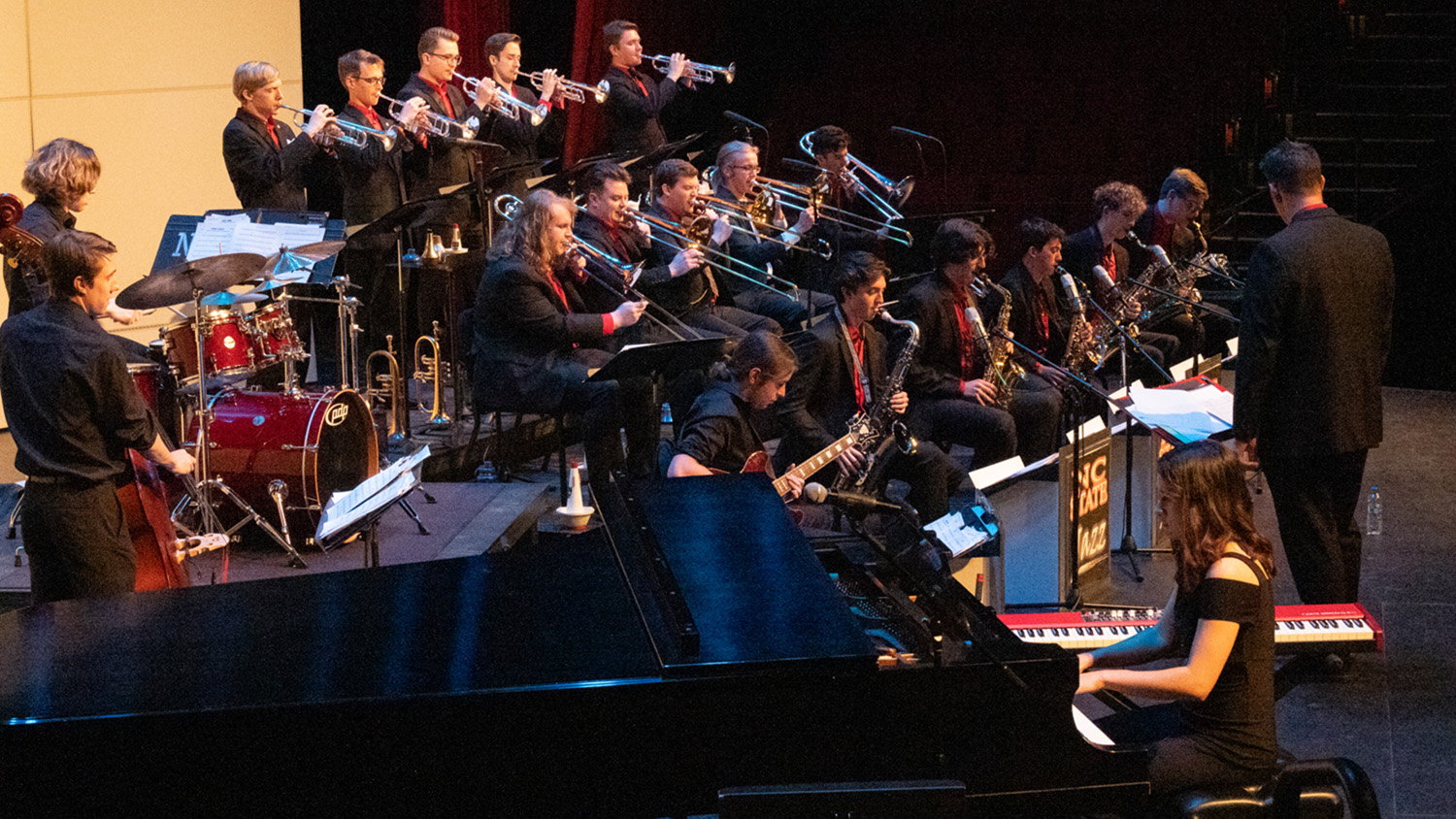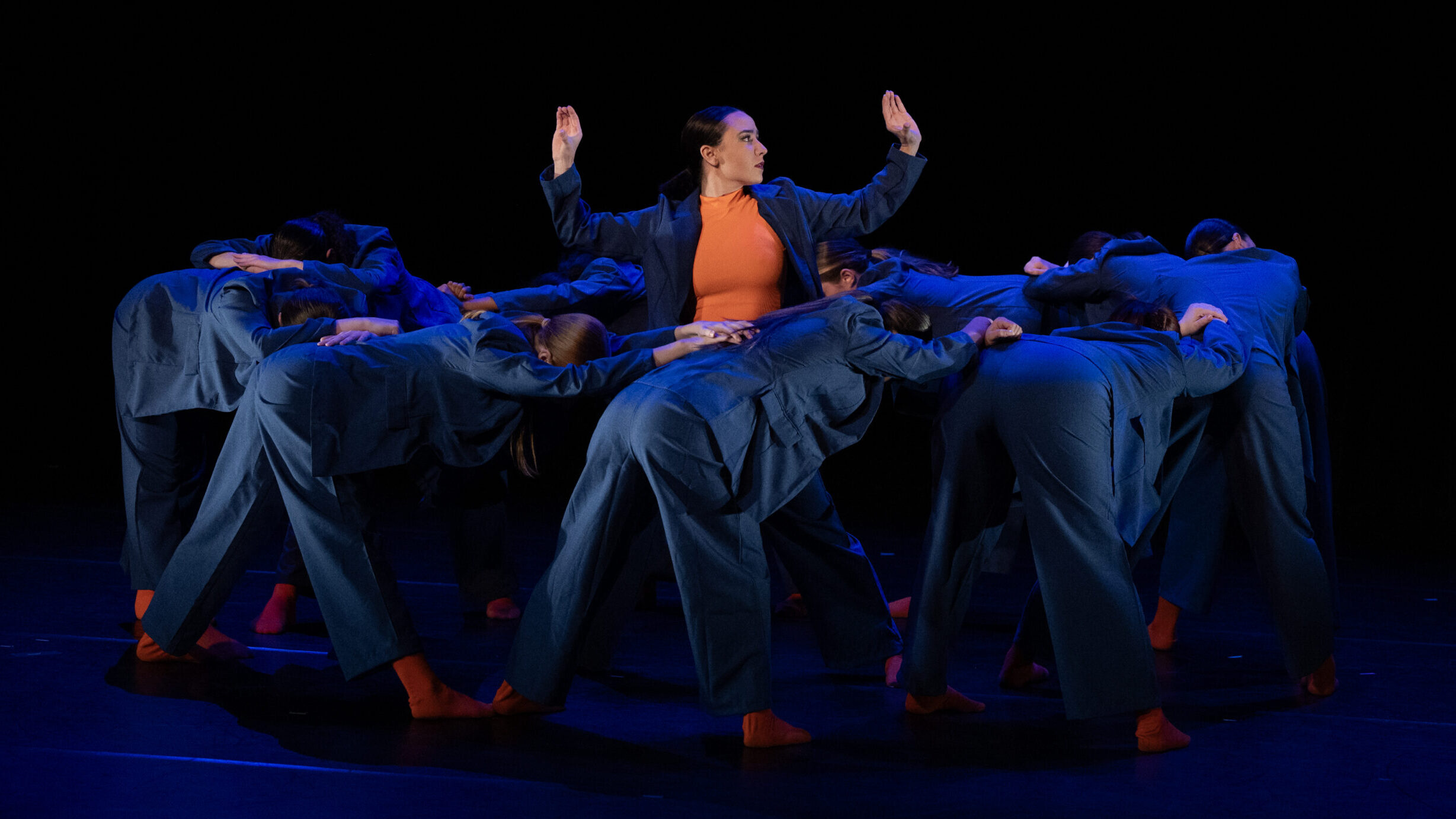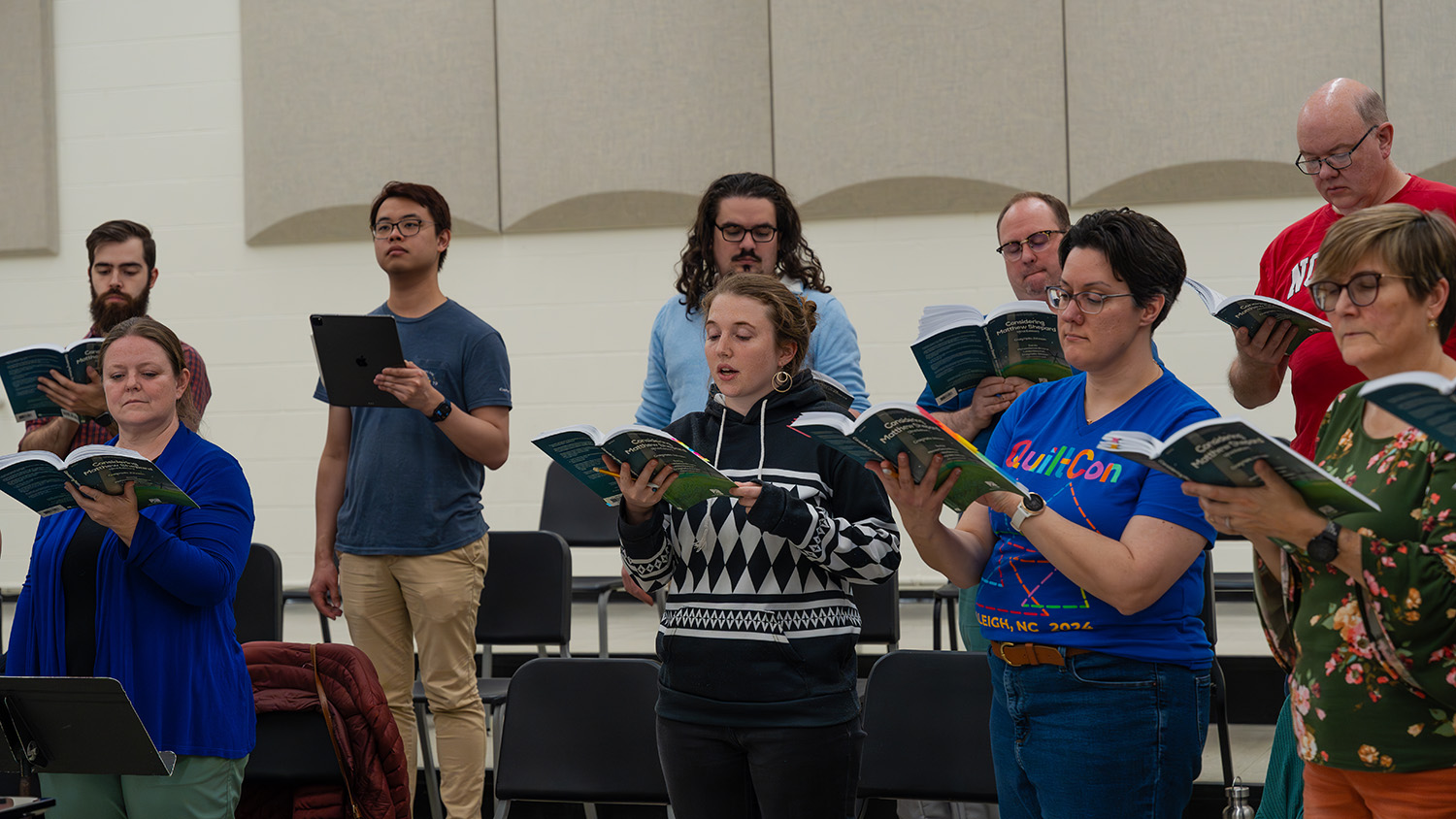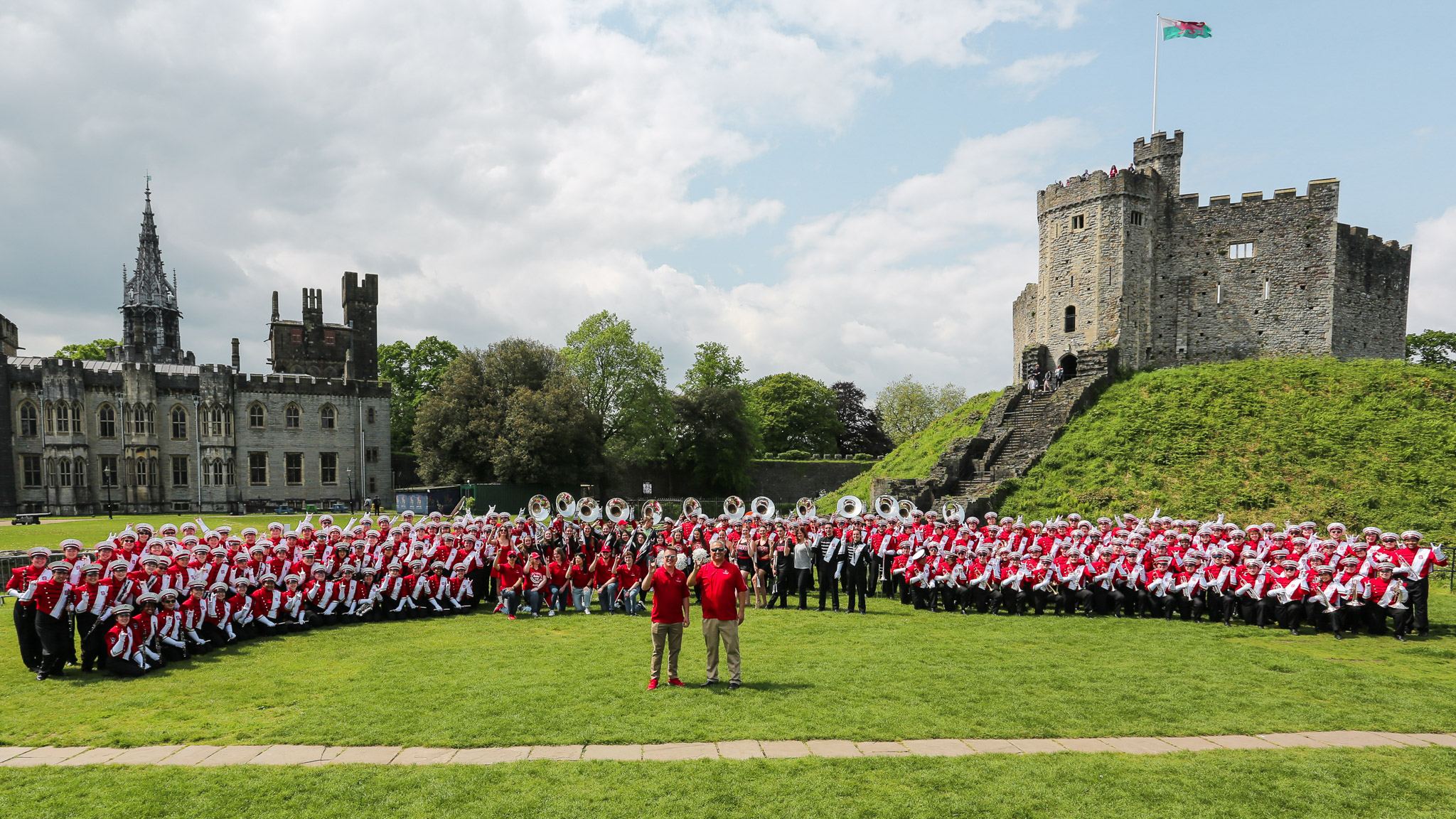NC State Jazz Orchestra invited to perform at Midwest Clinic
The big band will be the first collegiate ensemble from North Carolina to perform at the prestigious conference in Chicago.

The NC State Jazz Orchestra has been invited to perform at the 76th annual Midwest Clinic international band and orchestra conference, which will take place in Chicago in December. This is the first time a collegiate ensemble from North Carolina will perform at the conference.
The Midwest Clinic is attended by more than 18,000 people—predominantly music educators—from all 50 states and more than 40 countries. It’s an honor to be invited to perform at Midwest alongside world class professional and amateur musicians and ensembles, ranging from middle school to adult ensembles. Teaching Professor Wes Parker, director of jazz studies, had never applied to take one of his jazz bands to the conference, but knew that his top band was strong enough to have a shot this year.
“One of the things I felt passionate about when I decided to apply was that, in the pandemic, I have so many colleagues who are leaving the music profession,” said Parker. “It made me think more about the value of what we do here…We’re training people to be good musicians who are going to go out and do other things professionally, but will be able to speak intelligently about music, perform at a high level and support the arts.”
In the last 15 years, the jazz program at NC State has grown from less than 20 students to one of the larger programs in the state, with two big bands and four combos. The invitation to perform at Midwest is a testament to the quality of the program, and the talent and hard work of NC State’s student-musicians.
Preparing students to be lifelong music-makers is a core philosophy of the music department. Through their performance at Midwest, Parker hopes that showcasing a collegiate jazz program composed entirely of students who are not majoring in music will allow conference attendees to see that participation in music at a high level does not have to end after high school for these students.
“We have six [jazz] ensembles and it’s a big deal here,” said Parker. “We’re thriving in ways that many universities struggle to maintain, and I think that’s important for these music educators to see.”
- Categories:


